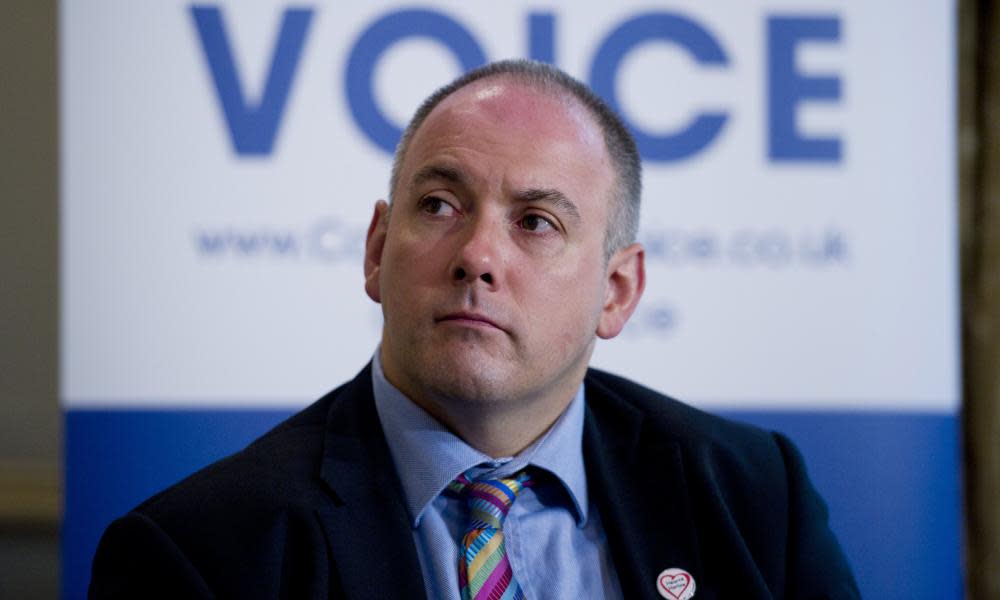Robert Halfon’s views on education cause concern

Robert Halfon’s quaint notion that vocational training should pass the “dinner-party test” is an indicator of how shallow his supposed blue-collar Conservatism is (‘The Tory party should change its name to the Workers’ party. I am 100% serious’, 17 April). How many people bringing children up in poverty are going to dinner parties where they would be looked down on because their child is an apprentice? His concern seems to lie with middle-class children in degree apprenticeships for lucrative, skilled jobs such as coding. The concerns of working-class parents and students are far more pragmatic, and many of them arise from the past eight years of Tory government: reduced access to free school meals, dwindling school budgets, the discriminatory and repressive use of Prevent in education, and higher tuition fees.
Nor do working-class students want access to university education only on the proviso that they study highly employable subjects like engineering, while their middle-class peers can afford to study medieval history. Subjects like classics and ancient history might be seen as a luxury by some, but it has served Mr Halfon’s colleagues Michael Fallon and Boris Johnson well in their careers. A society serious about democratic representation and equality of opportunity must offer working-class students the option of pursuing the same path to government.
Robert Halfon may be right that the Conservative party would be better represented by a “ladder” – the one that they have been pulling up after them since Thatcher.
And finally, lifted from the text to the headline, like a jewel gifted from the gods of comedy, is the laughable, suggestion that the Tories should rebrand themselves “The Workers’ party”. Pure Orwell.
Laura McAlpine
Labour PPC for Harlow and the Villages
• A working-class Tory he may be, but Robert Halfon is dragging out the same outdated Victorian philanthropy in his views on education . He belatedly discovers that abolishing the charitable status of private schools would be dauntingly complex. Does he perhaps mean that it would also be dauntingly complex to explain it to some of the Tories’ own rich donors and voters? Bursaries and assisted places do not solve the problem. In the end only 7% of children attend these schools. This is why, in 1944, another Tory (a grandee interestingly, RA Butler) wanted to abolish them outright but was talked out of it by Churchill. Can Radical Robert explain why no other country in developed Europe has our ridiculously fractured system of education?
David Redshaw
Gravesend, Kent
• In Peter Wilby’s account of his interview with the education select committee chair, Robert Halfon MP, we learn that Halfon has voiced a distinct antipathy to medieval studies. Unlike university students of healthcare, coding, construction or engineering, who in Halfon’s view should be given discounted fees, undergraduate medievalists should, according to him, “pay full whack”. I wonder what Halfon would make of Carly Fiorina, who was CEO of the computer giant HP from 1999 to 2005 and the first woman to lead a Fortune Magazine top-20 company? Her first degree was in philosophy and medieval history. Small wonder that Wilby points out Halfon has “near-zero experience of business”.
David Head
Peterborough
• Despite his “ladder of opportunity”, laying out “the statistics of educational inequality”, Robert Halfon’s desire for a “more socially just system” is clearly yet another example of empty Tory rhetoric. He might well suggest that A-levels should be replaced, but knows full well that, in many public schools, the process has already started.
Following the cheating scandal exposed by the Guardian last summer, Halfon’s select committee questioned the head of Eton, a director of Ofqual and the chief executive of Cambridge Assessment International Education (CIE), which runs the Pre-U examinations, around which the cheating was focussed. Even when the head admitted seven of his staff were involved in these examinations, either marking or setting papers, and the CIE chief admitted his organisation was not a member of the Joint Council for Qualifications, which inspects and regulates all other public examinations, the committee displayed none of the indignation or disgust one would expect at the revelation of such unfairness. Not one member of the committee, Halfon included, thought it necessary to delve deeper, and ask, for example, about why so many public schools prefer Pre-U exams to the traditional A-levels.
Wilby and others may not regard Halfon as an “orthodox Conservative”, but someone in a position of authority who refuses to challenge instances of obvious unjustness sounds pretty typical of 21st-century Toryism to me!
Bernie Evans
Liverpool
• Join the debate – email guardian.letters@theguardian.com
• Read more Guardian letters – click here to visit gu.com/letters

 Yahoo News
Yahoo News 
